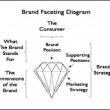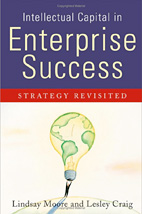During the 1990s, under the influence of a booming economy in the Western world, rapidly expanding globalization, and the new rhetoric of business models, even respected business gurus propounded the idea that, because everything was changing so quickly, “planning was dead.”
Does Google’s Purchase of Motorola Suggest It Is Changing Its Strategy?
In a recent editorial in the Wall Street Journal one commentator on the world of business puzzled that Google would so violate the patent rights of their competitors with their Android mobile operating system. He mused incredulously, that Google seems to assume that their competitors in the smartphone market don’t have a right to exclude them from using their intellectual property.
Patenting Food Products and Manufacturing Processes
Many manufacturing companies overlook the opportunity to patent aspects of their products or specialized manufacturing processes. This is especially true in the natural products industries, where unusual ingredients are often mixed together and specialized production processes are increasingly required to make food products and dietary supplement products that are acceptable to consumers. In most natural product categories, it takes substantial innovation for manufacturers to be able to produce successful functional and natural food or supplement products.
What is Knowledge Management?
Peter Drucker, the great patriarch and founder of management as a discipline, famously coined the term “knowledge workers” during the mid-twentieth century. “Knowledge workers” were the people who were being paid to think, to work with their brains instead of their hands. Fifty years later, such “knowledge workers” have become the lifeblood of our economy, and are approaching 60% of all workers in the United States.
How Do We Think Strategically?
Within today’s rapidly changing corporations, individuals at all levels are increasingly called upon to demonstrate their ability to think strategically. However, many are inadequately prepared to perform this task. Many new executives, and even those long within the executive ranks, are unsure how to properly engage in strategic thinking.
Branding Diamonds
During the 1990s, De Beers Consolidated Mines began the then seemingly unusual practice of “Branding” its diamonds. It began inscribing a small Brand Mark on its stones to differentiate its products within the commodity marketplace, and to ensure their worth against the inexorable declining value of non-oil commodities. The growing success of Brands, Branding and the strategies of Consumer Packaged Goods (CPG) Marketing are widely recognized within the global business community.
Reverse Engineering for Competitive Advantage (PDF)
Reverse engineering competitors’ formulations is legal, can be ethical and can benefit a company’s strategic position in the marketplace – if it is pursued in the right way. As such, reverse engineering is a powerful product-development tool that can be used to trump even patent-protected formulations or proprietary compounds, thus enhancing a company’s place in the marketplace.
Brand Faceting and Marketing Strategy
Managing the growth and change of a Brand has always been difficult, requiring both art and wisdom. Most Brands are either over-managed and not allowed to change, or not managed at all and allowed to drift or even languish without strategic guidance or direction. The real art is to manage your Brand in such a way as to respect its natural expression. There is an art to it.
Competitive Strategy
Competitive advantage is that toward which strategic thinking aspires. Yet, ultimately, all competitive advantages are transitory. The only “sustainable competitive advantage” is the commitment to keep evolving one’s strategy to stay current with the times.
Non-Financial Performance Measurements
We are all well-acquainted with the traditional measures of enterprise performance. But today, under the influence of globalization, environmental crises, and widespread ethical breakdown there is pressure to identify and report new, non-traditional, and “non-financial” measures of performance to get at newly recognized dimensions of enterprise value, success, and significance. These new demands emerge from a belief that social, environmental, ethical, and geopolitical factors materially impact the ability of a company or enterprise to perform favorably.




 As the knowledge-based economy expands, the companies and individuals that possess intangible intellectual assets, such as intellectual property, will need specialized expertise, strategic thinking, legal experience, and the wisdom necessary to manage intellectual assets.
As the knowledge-based economy expands, the companies and individuals that possess intangible intellectual assets, such as intellectual property, will need specialized expertise, strategic thinking, legal experience, and the wisdom necessary to manage intellectual assets.